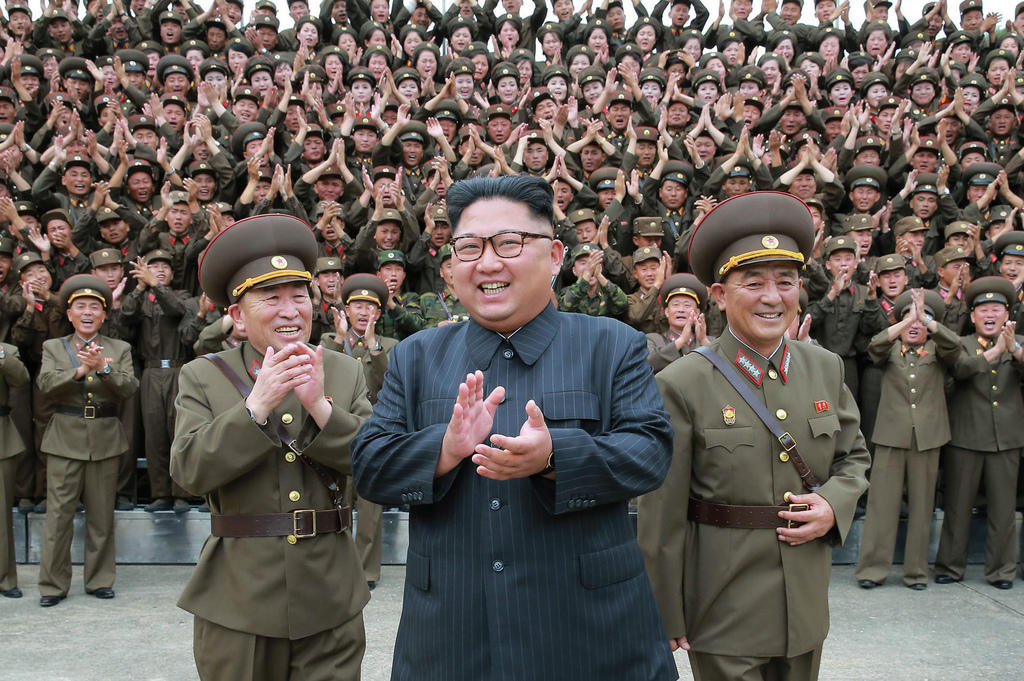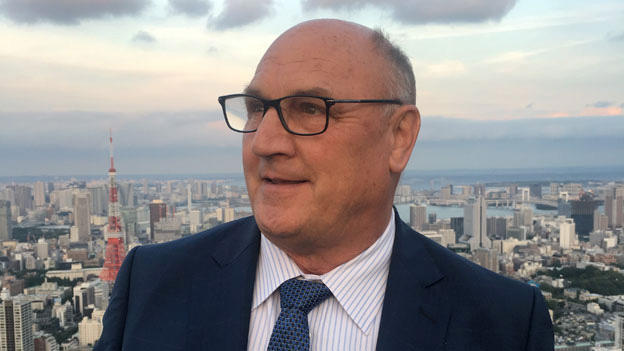
Swiss aid to North Korea not tied to politics

Switzerland is one of the few countries still providing aid to North Korea despite the nuclear tests and missile launches of the totalitarian regime in Asia. The head of the Swiss development aid agency in Pyongyang, Thomas Fisler, explains the reasons why.
Fisler, director of the Swiss Cooperation Office in North Korea, spoke to SRF public radio on Monday. The interview in Swiss-German dialect was transcribed in parts and translated by swissinfo.ch.
North Korea’s leaders have shocked the world with a series missile launches and nuclear tests over the past two months prompting a harsh international response.
Switzerland for its part has no plans to suspend its humanitarian aid and President Doris Leuthard on Monday reaffirmed the country’s willingness to act as a mediator and help resolve the crisis.
North Korea was hit by flooding in the mid-1990s, damaging crops and infrastructure and resulting in widespread famine.
SRF: What about the problems in North Korea, for instance poverty. There are reports about a serious situation in parts of the country. Comparisons have been made with Africa. Is this justified?
Thomas Fisler: This is problematic, I think. The geographic situation and the climate are completely different.

But there are undeniable facts. It is true for instance that one in four or five children below the age of five suffers from malnourishment. This is also one of the reasons for Switzerland’s engagement. Poverty is the cause of medical conditions and illnesses.
SRF: You mean hunger and a high death rate among children. How difficult is this for you to witness such cases?
T.F.: It’s not always easy to spot the symptoms right away. You have to be a specialist to see whether a child has suffered from malnutrition or a lack of food. Or that the age and the size of the body do not go together.
This is the difference between cases we know from pictures of children in Africa. (…)
SRF: Switzerland has been a donor nation for North Korea since 1995. Is this not a questionable role to help such a controversial regime?
T.F.: Switzerland’s humanitarian aid does not depend on a particular political situation. We provide humanitarian assistance where ever it is needed around the globe. Especially in cases where we have assurance that our aid benefits those who need it.
Therefore, we have our offices in other countries and this is my job.
SRF: The Swiss assistance for North Korea causes controversy among the Swiss public. Do you often have to justify the Swiss position?
T.F.: Humanitarian aid is regularly put in a political context. Yet, this is not our mandate. We have to help those who are in need.
SRF: Most international organisations have left North Korea, some of their own will or maybe because they had to under pressure from the regime in Pyongyang. Why is the Swiss development agency still present?
T.F.: It’s because we still have the opportunity to provide aid. We are accepted. This is one reason. Other development aid organisations got into trouble because their countries tied assistance to the political situation. Or because their budgets were cut to zero or reduced because of North Korea’s policy.
However, Switzerland’s assistance has remained relatively stable over the past five to seven years.
SRF: Is this also because Switzerland is a neutral country?
T.F.: Yes, I’m sure. We often hear that Switzerland’s engagement is appreciated. I hear from the Korean side that there is agreement and that they find it useful what we do.
SRF: What about compromises? Don’t you rely on the goodwill of the North Korean ministries?
T.F.: We have managed to achieve a level of cooperation which works fine. There is a certain amount of trust at all levels which allows us to target our help well. (…)
SRF: The programme of the Swiss Agency for Development and Cooperation (SDC) includes SFR30 million ($31.2 million) for the next four years. What’s the money spent on?
T.F.: We focus on two things: Food supplies and the construction of drinking water facilities. Clean water is the first step to improve health and hygiene. Many babies suffer from illnesses which are caused by contaminated water.
A major part of the money goes towards milk powder deliveries by the World Food Programme. The powder is used to process a nutritious biscuit containing vitamins.
These biscuits, produced in North Korea, are handed out to children up to the age of five in homes and creches. (…)
Another sector is agro-forestry. We try to stop soil erosion and help stabilise sloping land. (….) In the 1990s, massive swathes of hilly land were deforested to plant maize. We help re-forest the slopes to stabilise them and cultivate suitable crops.
Adapted from German by Urs Geiser

In compliance with the JTI standards
More: SWI swissinfo.ch certified by the Journalism Trust Initiative

























You can find an overview of ongoing debates with our journalists here . Please join us!
If you want to start a conversation about a topic raised in this article or want to report factual errors, email us at english@swissinfo.ch.